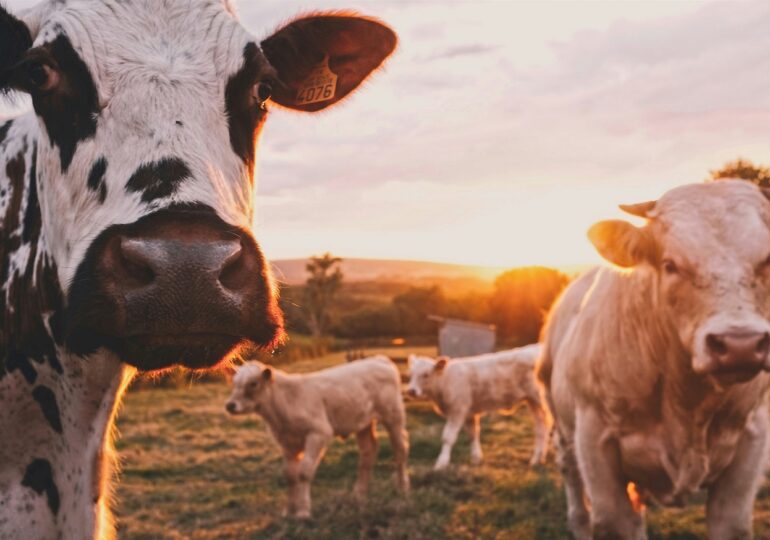The world’s first pollution tax for emissions generated by animals raised on farms will come into effect in 2030 in a Scandinavian country. The measure has been accepted by all industry representatives and unions, and farmers should pay nearly 100 euros annually for each cow.
The governing coalition in Denmark has decided this week to introduce the first tax for carbon dioxide emissions generated by animal farms. The agreement for the „flatulence tax” was reached between the center-right government and representatives of farmers, industry, and unions, reports Euronews.
Danish animal breeders will be taxed with 300 crowns (40.2 euros) per ton of equivalent carbon dioxide in 2030, and the tax will increase to 750 crowns (100.5 euros) by 2035.
However, a 60% tax deduction will be granted, so farmers will have to pay 120 crowns (16 euros) per ton of CO2 in the initial phase, reaching the level of 300 crowns (40.2 euros) in 2035.
The tax is set to be approved by the 179 members of the Folketing, the Danish parliament, but consensus is expected to be easily reached.
The world's first country with a pollution tax for agriculture
The Danish Minister of Taxes, Jeppe Bruus, stated that the goal of the measure is to reduce the country's greenhouse gas emissions by 70% by 2030. "We will take a step closer to becoming a climate-neutral country by 2045," said Bruus.
Denmark will be the first country in the world to introduce "a real carbon tax in agriculture", emphasized the minister, adding that he hopes other countries will follow this example.
The coalition agreement also involves investing in the coming years 40 billion crowns (3.45 billion euros) in measures such as reforestation and creating wetlands.
The Danish Society for Nature Conservation, the largest nature and environmental conservation organization in the country, described the fiscal agreement as "a historic compromise."
The decision to introduce the tax was made after months of protests by farmers across Europe against measures and regulations to mitigate climate change, which they claim are leading them to bankruptcy.
100 euros per year for each cow
According to the most recent data from the Danish Statistics Office, there were 1.4 million cows in the country in June 2022. A cow produces approximately six metric tons of equivalent CO2 per year.
Applying the lower tax rate of 16 euros per year results in an annual tax of 90 euros per cow. Including the tax deduction, the tax will increase to 225 euros in 2035, according to calculations made by CNN.
Denmark, a major exporter of dairy and pork products, is the only country in Europe with more pigs than people. The government in Copenhagen has prepared the world's first national strategy to promote vegetable and fruit consumption to reduce the environmental impact of meat consumption.
How much do animal farms pollute
Although carbon dioxide typically receives more attention for its role in climate change, methane captures about 87 times more heat over a 20-year period, according to the U.S. National Oceanic and Atmospheric Administration.
Animal farms are responsible for approximately 32% of methane emissions from human activity, according to the United Nations Environment Program.
New Zealand adopted a similar law in 2022, but it was recently abandoned after reactions from the agricultural sector. The government of this country announced that it will exclude agriculture from its emissions trading scheme in favor of exploring other ways to reduce methane.
T.D.

